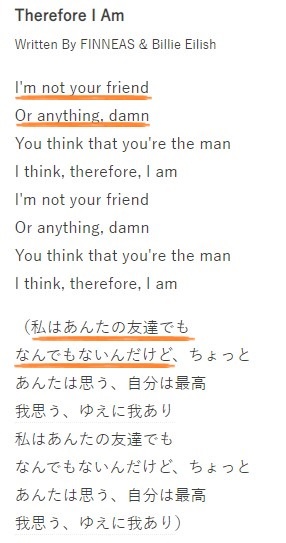でもなんでもない (demo nan demo nai) Meaning Japanese Grammar - Not At All
GokuGoku
Get in touch with meThe expression でもなんでもない (demo nan demo nai), or written in kanji でも何でもない, is used to give a lot of emphasis that something is not it is in a certain way.
This expression is used in situations where the speaker intends to express the fact that something is absolutely not a certain way.
In this post we go to see what this expression is made of, how it is formed, and some real examples of its use.
What the expression でもなんでもない consists of
The expression でもなんでもない is made up of the following grammatical parts:
- でも: the first でも (
demo) indicates contrast towards what is previously indicated (translated witheven if) - 何: means
whatand is often used in questions (what ...). In a negative sentence (as in this case) the use of 何 ** emphasizes the negation** - でも: the second でも emphasizes even more the sense of contrast in the expression
- ない:
do not exist, used to close the expression with a negative meaning (is not)
When these parts are put together in the expression でもなんでもない we can see how they add a lot of emphasis on the idea of negative contrast towards what is stated: thus translated as absolutely is not ....
Other expressions such as 別に and 全然 can be added to emphasize the meaning even more
A simple example to understand the meaning of でもなんでもない is the following:
好きじゃない。
I don't like it.
好きでもなんでもない。
I don't like it at all!
In this example, the use of でもなんでもない emphasizes the negative meaning expressed by じゃない.
How to use the expression でもなんでもない
This expression can follow a noun or a na adjective (な):
Examples of using でもなんでもない
嘘でもなんでもない。
I assure you I'm not lying.
In this first example we see how the use of でもなんでもない can also be found in sentences that do not necessarily want to negate what was said previously.
In the example, the expression でもなんでもない is used with the noun 嘘 lie to indicate that it is absolutely not a lie, thus trying to convince someone of the veracity of what we say.
Another translation thus becomes is absolutely the truth, by reversing the double negation of 嘘 and でもなんでもない.
あいつはもう親でもなんでもない。
That guy is no longer my father at all!
その書類というのは大切なものでも何でもない。
These documents are really nothing important.
金目のものでも何でもありません。
It has absolutely no value.
今の十二鬼月でも何でもないそんなことも分からないのか。
That wasn't at all a 十二鬼月, you don't even know this.
- Excerpt from an anime, argument between two friends or ex-friends...
0:00.00
-1:0-1.00
あなたなんてプリキュアってだけで友達でも何でもないんだから!
あなたなんてプリキュアってだけで友達でも何でもないんだから!
You're just a Pretty Cure and you're not a friend or anything!
- From an English - Japanese song:

- The expression でもなんでもない returns in these lines and the meaning is in general strong and negative
- the concept is: I'm not your friend or anything, we are nothing
Similar grammar points in Japanese 📚